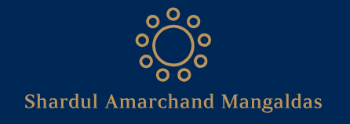In a recent judgment rendered in HCL Infosystem Ltd v CBI,(1) the Supreme Court dealt with the question of whether a special judge designated to deal with cases under the Prevention of Corruption Act 1988 is empowered to try offences which do not fall within the act.
This question arose in the context of an investigation into the National Rural Health Mission (NRHM) scam.
In the case at hand, the Supreme Court held that the Code of Criminal Procedure 1973 applies to trials before a special judge and that there is no prejudice to a trial before a special judge duly appointed to oversee cases that fall under the Prevention of Corruption Act if the object of doing so is to try connected cases before the same court.
The NRHM, an initiative undertaken by the government to address the health needs of under served rural areas, was launched in April 2005 under the National Health Mission.
The Central Bureau of Investigation (CBI) began investigations based on allegations that the NRHM funds allocated to Uttar Pradesh between 2005 and 2006 by the Ministry of Health and Family Welfare were diverted and allegedly misappropriated on a large scale. A number of individuals suspected of being involved in the embezzlement of the NRHM funds were arrested.
A number of cases emanated from the NRHM scam and a single judge was designated by special notification to dispose of all matters relating to the NRHM scam in Uttar Pradesh.
Within this series of cases, one related to a charge sheet filed by the CBI against the appellant, covering offences which did not fall under the Prevention of Corruption Act, but rather under Section 120B read with Sections 409 and 420 of the Penal Code 1860 (ie, criminal conspiracy). The special judge declined to entertain the charge sheet on the grounds that it included offences that did not fall under the Prevention of Corruption Act.
An appeal against the special judge's order was filed before the high court, which held that the special judge could address "all offences relating to NRHM Scam" even if they were not covered by the Prevention of Corruption Act.
In dealing with the appeals against the special judge's order, the high court observed that an anomalous situation would be created if various accused individuals charged with offences arising out of the original information report were tried by different courts on the "flimsy ground" that some were charged only with offences arising out of the Penal Code, rather than offences under the Prevention of Corruption Act.
The high court found that trying all matters relating to the NRHM scam before one court was administratively and judicially sound. Further, the high court observed that such an approach would advance the cause of justice with regard to the NRHM scam, as having one court review the case instead of multiple courts would prevent conflicting positions and judgments.
Further, the high court found that the death of a public servant who was named in the charge sheet and against whom charges under the Prevention of Corruption Act were sought would not bring an end to the trail regarding that charge sheet.
The Supreme Court reviewed the high court's order.
In short, two questions of law arose for consideration before the Supreme Court:
- Can a special judge appointed under the Prevention of Corruption Act try a co-accused individual if the accused public servant dies before commencement of the trial?
- Can a special judge try a non-Prevention of Corruption Act case when his or her appointment is to try all cases or offences connected with, related to or committed as part of the same set of transactions for which public officials are charged under the Prevention of Corruption Act?
The Supreme Court dismissed the appeals, holding as follows:
- With regard to the first question, as charges had not been brought before the special judge, but charges based on material placed on record under the Prevention of Corruption Act had not been ruled out, the arguments advanced to challenge the high court's order were premature.
- With regard to the second question, the Supreme Court held that the special judge was not only authorised to deal with the offences under the Prevention of Corruption Act (as it had held in Jitender Kumar Singh),(2) but also other offences. According to the Supreme Court, this course was permissible in view of its jurisprudence in Essar Teleholdings Ltd.(3)
The Supreme Court went on to hold that the special court in question had been constituted not only to deal with the cases under the Prevention of Corruption Act, but also all cases relating to the NRHM scam.
The Supreme Court was of the view that the Code of Criminal Procedure applied to the trial before the special judge, as the object of doing so was to try connected cases before the same court. It further held that both offences falling within and outside of the Prevention of Corruption Act could be tried by the special judge under Section 26 of the Code of Criminal Procedure, as this was not prevented by law.
For further information on this topic please contact Jasleen K Oberoi or Gauhar Mirza at Shardul Amarchand Mangaldas & Co by telephone (+91 11 4159 0700) or email ([email protected] or [email protected]). The Shardul Amarchand Mangaldas & Co website can be accessed at www.amsshardul.com.
This article was first published by the International Law Office, a premium online legal update service for major companies and law firms worldwide. Register for a free subscription.
Endnotes
(2) State v Jitender Kumar Singh (2014) 11 SCC 724, (2014) 3 SCC (Cri) 512, (2014) 2 SCC (L&S) 843.
(3) Essar Teleholdings Ltd v Delhi High Court, (2012) 8 SCC 1, (2013) 3 SCC (Cri) 744, (2014) 1 SCC (L&S) 51.





